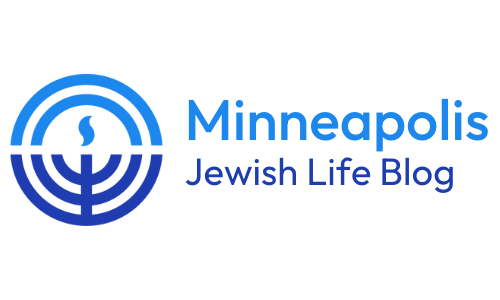What it's like to be a distance learning teacher: Torah Academy
Here’s to the educators—on a moment’s notice, they completely transformed how they do their jobs to make sure our kids’ Jewish education didn’t miss a beat. We wanted to know: How are they handling this? What are they learning? How can we help them? For the next several days, we’ll be sharing interviews with teachers at our seven partner schools.
Torah Academy Executive Director JB Borenstein told us that Torah Academy wasn’t set up to be a virtual school, but teachers like Sara Lang are making it work. Sara, a middle school science teacher, has found comfort in scientific principles—and she can’t wait to be back in the classroom for hands-on learning.
How was the transition to distance learning?
Sara: The administration has been great, and that’s helped propel me. Everyone is doing the best they can! There were so many glitches in the first recording I sent my students. I told the kids, ‘you don’t even know how hard it was to get this resource to you. I was about to give up, but, when you’re a scientist, failure is expected.’ Failure means I’m trying something new.
How are the kids handling it?
Based on what I understand about my students in the classroom, I’m not surprised that some are thriving and some are struggling. We contact all of our students once a week as kind of a check-in— academically, yes, but also listening for those subtle emotional pings.
I tell my kids who are struggling, “This is HARD! If it wasn’t, I would be concerned.” I keep reminding them, this is hard, but we’re going to get through it. And when we get back to the classroom, I want to maintain the recognition that even thought something is hard, we will get through this. I can tell them, “I’ve seen you go through harder challenges! I’ve seen you try to learn on a phone.”
That’s been a real struggle for some students—sometimes the only way they can watch class is on a phone, but then they can’t also view the digital materials we send. We’ve started printing out materials that students can pick up on Fridays, and that’s helped.
What are you teaching this semester?
I was planning on doing fossils for the end of the year. I had thought about going to the river, doing some fossil hunting. But I realized, well, this isn’t going to be as much fun online. So I asked the principal if I could do a more detailed unit on infectious diseases instead.
We’ll still touch on fossils, to meet standards. Standards are important, but so is understanding life.
I think a lot of parents are trying to understand how to talk to kids about this. Do you have any insight?
There is a really, really fine balance between giving them the truth and maintaining a sense of calm. I believe information, when approached correctly, helps reduce fear. I think a lot of my focus is going to be on fighting infectious disease. We're going to study how disease gets in our body, how policies are trying to help us. Once they understand how their bodies work and how disease spreads, it all becomes easier to explain.
There’s this flawed thinking that science is kind of untouchable. I think we need to make science just a little more relatable.
Have you learned anything unexpected through this process?
The lesson I’m learning is resilience, both in myself and in my students. Just watching them struggle—and it’s such a genuine struggle—I’m becoming a better communicator; they’re becoming much better communicators. They’re learning to articulate their ideas. Honestly, I don’t think I gave them enough credit, and I need to recognize that in myself.
How have you felt supported by the Jewish community?
We had a teacher parade where all of us teachers decorated our cars and drove through the eruv where a majority of students live.
Ill deny I said it but it brought me to tears.
Just seeing these kids... I realized that I missed them! And there were so many people both from the school and the neighborhood. Just that outpouring of support was amazing.
Someone snapped a picture of a 96-year-old holocaust survivor, sitting outside on her patio watching the parade, and I just started ugly crying at that point. We're just one community under one giant need to survive. We're doing way more than surviving—we're thriving!
Did any of your students benefit from the kosher lunches provided through Federation’s grant?
The lunches helped incredibly. Even families who aren’t financially struggling in the sense of “I can’t put food on the table” appreciated it. These parents are working from home, and having their kids home– it’s exhausting, making sure they’re getting a real meal.
These lunches are doing incredible things for the kids. Kids don’t do well if they’re not fueled. Science says so!
Torah Academy received a grant from Minneapolis Jewish Federation’s COVID-19 Emergency Relief Fund for remote learning tools, kosher meals for families in need, and security upgrades.

